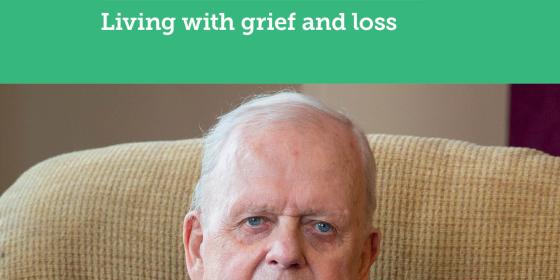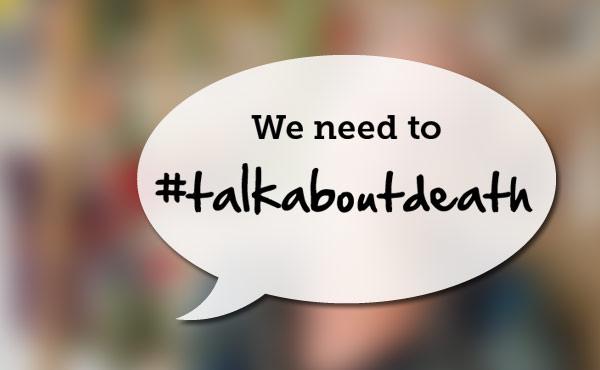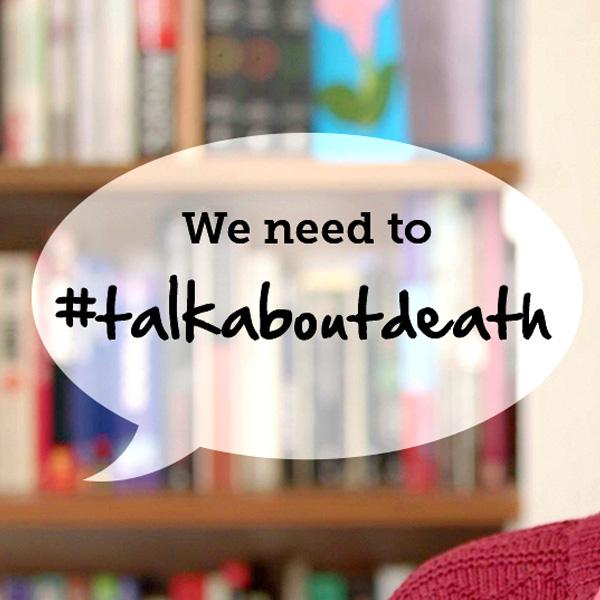
Facing our own, losing someone we love… most of us try not to think about the D-word, much less talk about it over the dinner table.
In fact, according to a recent Independent Age survey, almost half of people aged 40-64 don’t feel comfortable talking to their parents about death, with a third saying they much prefer to talk about their weight.
But does it really matter? After all, death comes to us all whether we like it or not. What can we possibly gain from discussing it?
At Independent Age, we believe it matters more than you think. Chief Executive, Janet Morrison, says, “It’s understandable that many people struggle to talk about death and final wishes; it’s an incredibly emotive topic and, unsurprisingly, people don’t always know how to broach the subject.
“Wouldn’t it be helpful if we could all be more open and share our final wishes earlier, so our later years can be filled with positivity, rather than awkward conversations?”
Psychologist, Corinne Sweet, agrees: “People find death a difficult topic to discuss as it usually brings up a lot of feelings: anxiety, fear, awkwardness, sadness. We tend to pretend, as a culture, that it’s not going to happen.
“But when it does, we’re thrown by the strong emotions it brings up – we’ve all heard stories about families falling out over the inheritance. So it’s incredibly important for all generations to talk about death - ahead of time - so that feelings can be faced, processed and relationships set straight.”
Broaching the difficult conversation
Nevertheless, our resistance is huge. Our survey found of those people aged 40-64 uncomfortable about broaching the topic, over a third said they wouldn’t dream of mentioning the D-word to their elderly parents for fear of reminding them it was on the horizon.
Perhaps they underestimate their parents. After all, it turns out that older people are much more open to discussing death than their adult children. In fact, nearly half of those asked said it was one of the easiest topics to talk about.
This is probably because most of them will have experienced their fair share of loss. Certainly most of those older people we support at Independent Age have lost more than one family member. Some have lost them all.
How ironic, then, that our research revealed that the older generation are much less likely to be offered bereavement counselling than anyone else. This is despite the fact that they’re more prone to depression or mental health issues after their loss.
Corinne says, “One of the hardest things to face is the loss of a partner. The grief can seem too enormous ever to come to terms with. It’s really important that people receive proper support.
She adds, “There is no right way to grieve – everyone does it their own way – but it’s important not to isolate yourself. Going into a bunker and closing the lid may be all you feel like doing but it’s better, in the long run, to talk about your feelings with someone you trust.”
It’s time to end this deathly silence
We believe no one should be too polite to talk about death. Over the coming weeks, we’ll be providing tips, information and articles to help you start the conversation. We’ll also be sharing people’s stories to show why it’s so important.
You can read about Pam who, while grieving for her husband, felt so unable to express her difficult emotions to those around her that she became desperate and isolated.
Then there’s Ron who was devastated when he lost Bob, his partner of 40 years, but has found solace in being allowed to open up about his grief in a way that wouldn’t have been possible in the past.
And you can read about Alison and her father Geoffrey, who is terminally ill with lung cancer. They are both finding peace in the fact that they have time to prepare and say goodbye.
After all, the biggest benefit of talking about death is that it reminds us to appreciate life. Corinne says, “Reminding ourselves that time is finite can actually help us squeeze the pips out of life. It can make every day, every sunset, every good conversation so much more enriching.”
Janet adds, “As a nation, we need to start embracing these conversations and promote a positive change in how we perceive and talk about this subject. We don’t expect to see change overnight, but it’s time to take action, be brave and talk about death.”
For free advice, information and support, visit www.independentage.org/TalkAboutDeath

